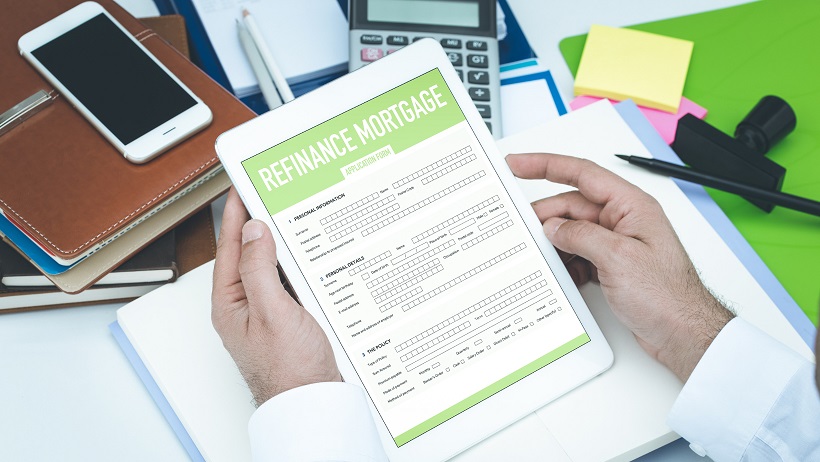Refinancing your mortgage at the right time can save you thousands of dollars. Doing it at the wrong time will cost you thousands. Before refinancing read on and discover when it is worth refinancing and how to get the best rate.
Why and when you should refinance a home loan?
To keep it simple – you should refinance your home mortgage when you can get a better interest rate, terms or cash to pay off other debts with a higher interest rate. Getting a better mortgage interest rate will lower the monthly payment on your home loan, however there are typically thousands of dollars in fees when you refinance your mortgage so you have to consider that into the savings.
Tap into equity
Of all the reasons to refinance a mortgage this is the one we recommend to be wary of. Refinancing to tap into equity, whether it is to purchase something, finance remodeling, pay for college, or especially, to consolidate existing debt, can be a slippery slope into more debt. Extending the length of a mortgage is not often a prudent move. And if you have a history of racking up high-interest debt such as credit cards, unless you have dealt with the underlying issues, you are likely to do it again and perpetuate the cycle of debt.
Reduce monthly payments
When you change to a loan with a lower interest rate or fees you can reduce the monthly repayments. This will increase your available cash which, if invested right, can build your wealth faster than paying down your mortgage.
You should note, however, that you could also be extending your loan and thus the amount of interest you are paying overall. Compounding interest means that the longer the loan the more you pay.
Pay off the loan faster
Securing a lower interest rate will reduce the repayment amounts. If you continue paying the higher repayment amount you were previously, you can pay off the loan faster. This will increase the equity you have in your home more quickly than if just pay the required repayment. Again, make sure the loan can be repaid faster and you have essentially extended the loan life – compounding will get you.
Switching from a fixed-rate loan to a variable-rate loan or vice versa
If interest rates have changed significantly since you signed your mortgage or personal circumstances have changed you might want to change from a fixed to variable loan, or the other way around. You may have started out with a higher fixed-rate loan but interest rates have decreased meaning you are paying twice the variable rate. Or you may have started out with a variable-rate loan and now your life circumstances make it preferable to have a fixed amount you pay each month.
The Downsides of Refinancing Your Mortgage
There are a few downsides to refinancing, some we touched on above. But it is worth highlighting them so you can make an informed decision about the biggest loan you are ever likely to take out.
Paying more in interest over the life of the loan > When you lengthen the life of a loan you end up paying more in interest because of a little thing called compound interest.
Closing costs can be expensive > costs to close a mortgage can run into the thousands. When you are calculating the cost of a refinance you need to take these into account. They can extend the break-even point, something to consider if you are likely to sell your home within the life of the loan.
Applying for a loan can affect your credit > If you apply for a loan, (not getting a loan estimate) it will result in the application becoming a hard inquiry on your credit report. This can reduce your credit score, especially if you are applying to multiple lenders within a short period.
How to Consider Refinancing Your Mortgage
Use a mortgage refinance calculator > The next thing you should do when trying to decide if refinancing is worth it is to use a refinancing calculator. Crunch those numbers and make sure it really is worth it to refinance.
A good refinancing calculator will show you the break-even point – the point where the savings you have made exceed the closing costs of refinancing. Bank Rate has a good calculator but you will also find most banks have one.
The calculator will give you an idea of whether it is financially sound to refinance.
Shop around > Just as when obtaining a mortgage for the first time, refinancing requires that you shop around for the best rates and the best fees. The closing costs on refinancing a mortgage can run into the thousands and affect the savings you are trying to make.
Current Mortgage Interest Rates
It’s very important to consider the current interest rates (influenced by the Federal Reserve Funds Rate), economic conditions and your credit score. They all affect the amount of money you will save by refinancing your mortgage. If you have great credit, you will always get better rates no matter the current financial market.
However, if interest rates on loans are higher than when you initially took out your home mortgage, it may not be best to refinance.
When you reach out to a lender, they will provide you will a Loan Estimate, within three days of having your basic information. This is really useful as you get a better idea of the costs, interests, and repayments than just using a calculator. Compare the details carefully from each lender you approach.
The bottom line
Do your homework! Just like when you took out the original mortgage, arm yourself with information, shop around and make sure that the decision to refinance is right for you.





